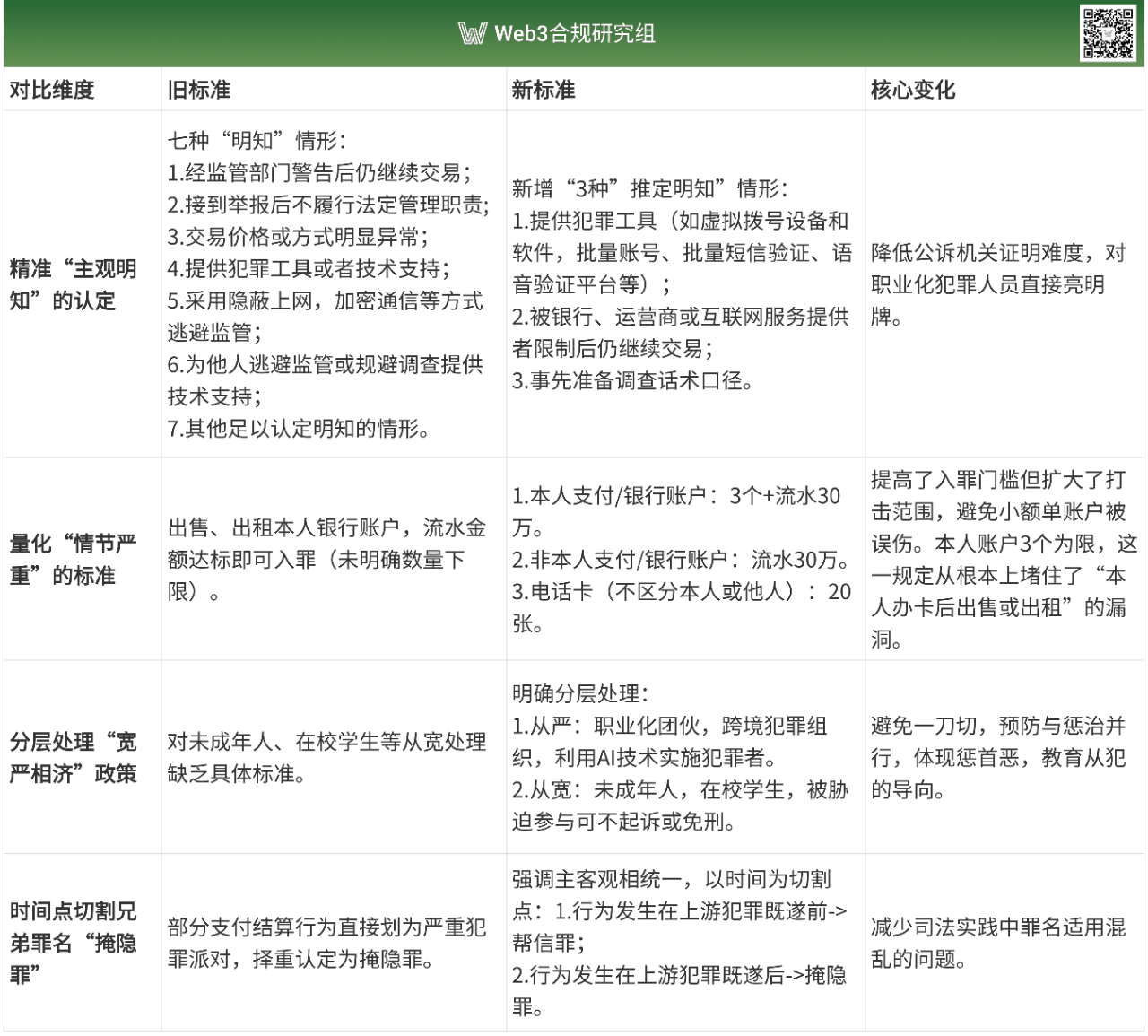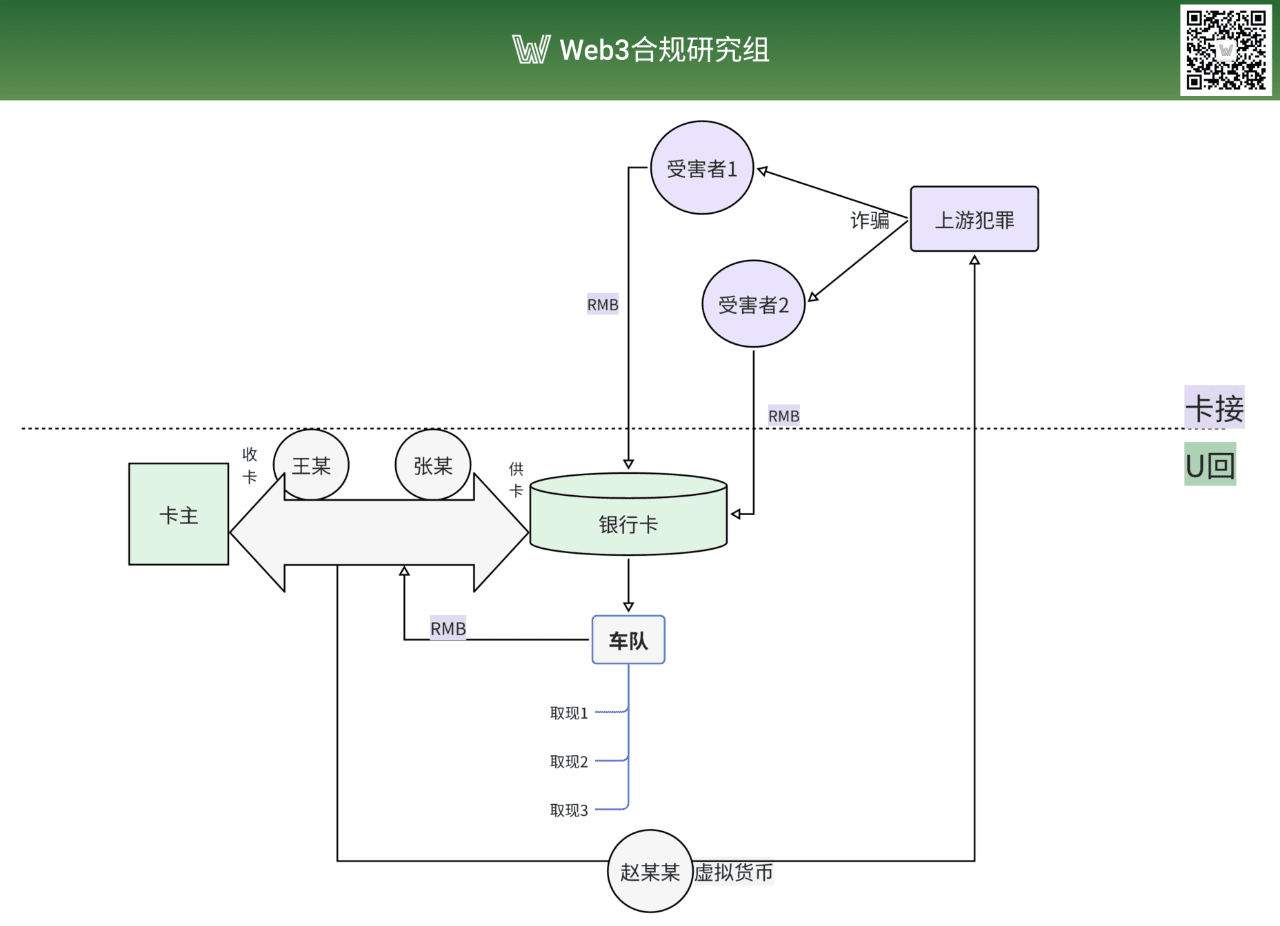Written by: Lawyer Pang Mei Mei

In summary, the release of the guidelines concerning handling criminal cases related to aiding information network crimes marks a phase of 'penetrative' crackdown by judicial authorities on the virtual currency industry. Practitioners must deeply understand that only by building a comprehensive compliance system covering 'pre-review -> in-process monitoring -> post-tracing' can they conduct business within the compliance framework.
In 2015, China added the crime of aiding information network crime (hereinafter referred to as 'aiding crime') to the Criminal Law. With the deepening of the 'cut-off card' action, the number of prosecutions for this crime has rapidly increased. Public data shows that aiding crime has become the third most common type of criminal cases. In practice, people have mixed feelings about this crime; on one hand, it is favored for having lighter responsibilities compared to accomplice liability; on the other hand, as a catch-all clause, it is tricky and difficult to easily escape legal consequences. In practice, there are significant differences in the discretion standards of courts in different regions regarding aiding crime, leading to a frequent phenomenon of 'same case, different judgment.' On July 28, 2025, the 'Two Highs and One Ministry' jointly issued the guidelines concerning handling criminal cases related to aiding information network crimes (hereinafter referred to as 'the guidelines'), which can be seen as a super reinforcement manual for judicial practice regarding aiding crime and is referred to by many as 'the new regulations on aiding crime.'
1. What changes are there in the new regulations on aiding crime?
(The guidelines) have made significant adjustments to the standards for determining aiding crime and sentencing rules, mainly reflected in the following aspects

2. What is the judicial guiding significance of the seven typical cases?
(The guidelines) were released simultaneously with seven typical cases, which cover key roles in the 'U merchants,' 'number merchants,' and 'professional unblocking personnel' of the black and gray industry. In particular, Case 4 focuses on the field of virtual currency crimes. Through studying the guidelines and the published typical cases, I found that there is not much difference from the criminal cases we usually handle, but the methods for combating cybercrime and the black and gray industry are stricter and more forceful.
【Basic Case Facts】In mid-July 2022, defendants Wang, Zhang, and Zhao conspired to illegally profit by transferring, withdrawing, and purchasing virtual currency to move criminal funds for others. The three had clear divisions of labor, with Wang providing funds, Zhao buying virtual currency to hand to the uplink as collateral, and then Wang and Zhang acquiring a large number of bank cards from others to provide to the uplink for receiving criminal funds. Once the criminal funds were deposited into the bank cards provided by Wang and others, the uplink would notify them, and they would arrange for others to withdraw cash from multiple banks in Daqing City, Heilongjiang Province, taking a commission of 10%-15% from the funds received, before purchasing virtual currency with the remaining funds to transfer to the uplink. Investigation revealed that from August 5 to 14, 2022, Wang and others transferred funds for the uplink, resulting in 15 victims, including Lin, being scammed out of over 400,000 yuan.

【Judgment Result】The People's Court of A'cheng District, Harbin City, after lawful trial, sentenced Wang and Zhang to three years and six months in prison and fined them 30,000 yuan; sentenced Zhao to three years and three months in prison and fined 25,000 yuan. After the verdict, Wang, Zhang, and Zhao appealed, and the second trial upheld the original judgment.
【Warning】Wang, Zhang, and Zhao converted the criminal proceeds into virtual currency after receiving the illicit funds through bank cards, which is a typical example of using the 'card receive U return' method to transfer stolen money in virtual currency transactions. It is also a 'perfect' 'funding closed-loop' operation that many criminals believe they have achieved. In practice, many upstream fraud criminals hide abroad, cleverly using the anonymity, high concealment, and convenience of virtual currency transactions to transfer illicit funds, increasing the difficulty for law enforcement agencies to investigate. Downstream criminals assist upstream in completing the laundering and transfer of funds through a series of complex operations, continuously providing 'blood and food' for upstream, ultimately leading to irretrievable losses for victims. The guiding significance of this case not only materializes the applicable rules of the guidelines but also provides clear behavioral guidance and judgment standards for such cases. Even if one did not directly participate in upstream fraud, 'intermediaries' who provide channels for the flow of illicit funds should also be severely punished.
3. What should web3 practitioners pay attention to after the new regulations are issued?
The spring of web3 can only be 'legally vented.'
1. The new regulations send a clear signal that ignorance is no longer a universal shield. For practitioners in the web3 industry, they should strengthen their learning and understanding of relevant laws and regulations, increase vigilance, enhance risk prevention measures, and establish comprehensive compliance strategies to ensure the legality and compliance of business activities, avoiding becoming the 'tools' or 'accomplices' of criminals without knowing.
2. Under the policy of balancing strictness and leniency, students or those under coercion may receive lighter penalties, while tech giants face harsher consequences. After the issuance of guidelines, personnel involved in the construction and maintenance of virtual currency trading platforms, as well as technical developers of mixers and anonymous wallets, need to be vigilant about risks. Even if they did not directly participate in fraud or pyramid schemes, they may be deemed to have 'provided specialized technical support for illegal activities,' directly constituting the crime of aiding in criminal activities, as their development work effectively lowers the threshold for crime, thus no longer being 'technically neutral' but rather 'technically assisting.'
3. OTC merchants are undoubtedly 'walking on the edge of a knife,' with significantly increased criminal risks. If OTC merchants continue trading after their accounts are frozen, they may likely be deemed as 'continuing to act after being restricted,' directly constituting aiding crime. If they provide USDT matching services for underground banks, they may face multiple charges.
4. Compliance is imperative for web3 entrepreneurs. Web3 entrepreneurs should build an industry compliance system as soon as possible and strengthen internal training, regularly organizing legal training for all staff.
4. How do lawyers view the key impacts and challenges of the guidelines?
For organized and professional aiding behaviors, which are explicitly listed as severely punished in the guidelines, the issuance of these guidelines raises the cost of crime for upstream criminals and effectively punishes illegal groups such as professional card providers and maintainers. Although the guidelines have refined the standards for conviction and sentencing, providing a clearer legal basis and rules for lawyers handling aiding crime cases, the determination of 'knowing' may still have ambiguous spaces due to the complexity of cases. Factors such as the subjective awareness of the actor, the motive for the act, and whether there is really a profit motive are aspects that need to be deeply explored in defense work. In summary, the release of the guidelines concerning handling criminal cases related to aiding information network crimes marks a phase of 'penetrative' crackdown by judicial authorities on the virtual currency industry. Practitioners must deeply understand that only by building a comprehensive compliance system covering 'pre-review -> in-process monitoring -> post-tracing' can they conduct business within the compliance framework.
Lawyer Mei Mei suggests that practitioners in the virtual currency industry should help others but not 'aid' them. If they are investigated, they should immediately contact a lawyer to avoid being presumed to know due to incorrect statements.

